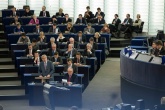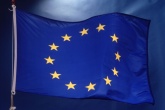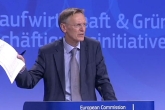Revised Circular Economy Package to include ‘country-specific’ targets

The European Commission’s (EC) revised Circular Economy Package will include more ‘country-specific’ waste targets, the Commissioner for Environment, Maritime Affairs, and Fisheries, Karmenu Vella, has revealed.
Speaking at the 2015 European Circular Economy Conference in Brussels yesterday (5 March), Vella outlined that the Commission, when re-tabling the package, will include a new legislative proposal on waste targets, taking into account ‘comments made by many that the previous waste proposal needed to be more country-specific’.
Two-fold approach
He stated: “The decision to withdraw the waste legislative proposal was based on the need to better align it with the priorities of the new commission. The commission has decided to undertake a thorough reflection on how the objective of circular economy can be reached in a more efficient way that is fully compatible with the jobs and growth agenda.
“The commission is aiming to present a new, more ambitious circular economy package late in 2015, to transform Europe into a more competitive resource-efficient economy, addressing a range of economic sectors in addition to waste. The new approach is two-fold:
"First, we will of course present a new legislative proposal on waste targets. This new proposal will use the expert knowledge already gained to be more country sensitive. I want to assure you that we will keep our EU-wide goals on recycling levels.
"Our success will be measured by how well policies are implemented on the ground. So we will have to set smart, realistic objectives and focus on implementation.
"Second, to close that circle, we will prepare a roadmap for further action on the circular economy. It will consider two aspects:
- upstream: in the production and use phase, before products become waste; and
- downstream: after products are no longer waste, looking at what can be done to encourage and develop a market for the recycled products.
"The work on this half of the circle will take the form of a roadmap where we identify what can be done rapidly, and what we should propose at a later stage.
"Both these aspects – the waste targets review and the roadmap – will come together before the end of this year. I hope you will agree with me that this is quite a broad and ambitious programme."
Vella went on to highlight some actions that could be taken to further the circular economy, including:
- ‘continuously advancing waste management through incentives and support for waste reduction as well as high-quality separation and collection systems’;
- recouping ‘maximum value’ from resources requires action at all stages of the life cycle of products;
- circular economy thinking in the extraction of raw material to the product design, production and production of goods;
- increasing use of secondary raw materials;
- creating products that last longer, have a longer warranty, or come with repair manuals and spare parts;
- advancing repair and reuse schemes; and
- creating a ‘genuine market’ for recyclates.
Economic benefits of a circular economy
Looking to the economic benefits of a circular economy, Vella said: “Circular economy transformation on the scale we have in mind will never come about simply as a result of legislation. We need a combined approach, where smart regulation is blended with market-based instruments, innovation and incentives. These would provide businesses, including SMEs, with concrete tools and instruments and incentives to promote the transition to a circular economy.
“We want to give a clearly positive signal to those waiting to invest in the circular economy. Above all the private sector needs regulatory certainty. Clarity promotes investment and investment promotes jobs."
Vella went on to outline that increasing resource productivity by 30 per cent by 2030 could boost GDP by nearly one percent, while creating over two million jobs more than under a business as usual scenario and that waste prevention, eco-design, reuse and similar measures could bring net savings of €600 billion (£432 billion), or eight per cent of annual turnover, for businesses in the EU, while reducing total annual greenhouse gas emissions by between two and four per cent.
He concluded: “In a circular economy, almost nothing is wasted. Reuse and remanufacturing is standard practice, and sustainability is built into the fabric of that society. There is less waste to deal with, and more is generated from limited resources. The new technologies created then bolster the competitive position on the world stage. Our challenge is to place the European Union at the forefront of these developments.”
Vella stated that the EC will ‘consult widely’ with before choosing the most ‘appropriate tools’ to further the circular economy in Europe.
Find out more about the original Circular Economy Package, and the reasons for revising it.












